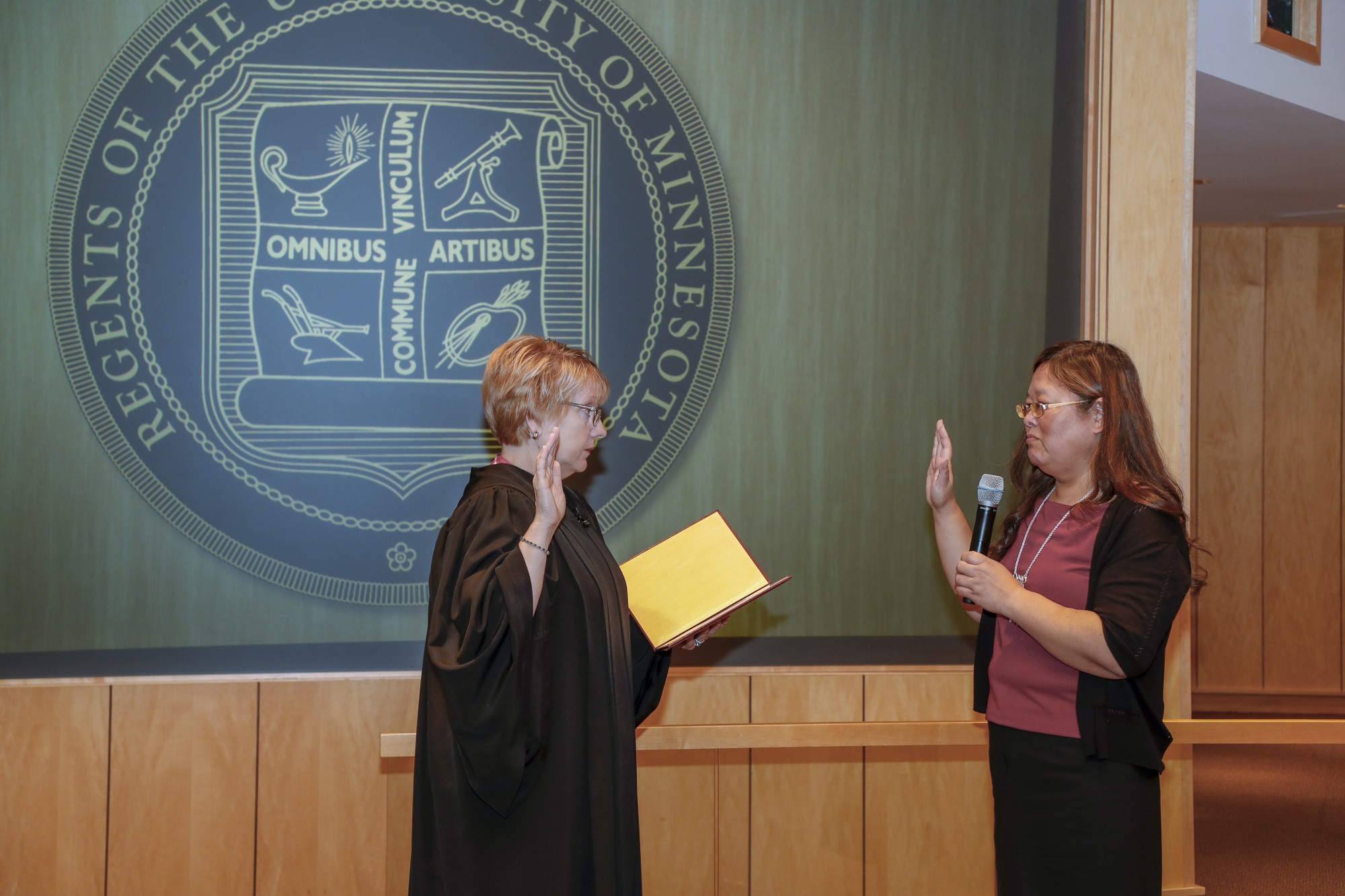As a kid, Ilean Her watched her parents give guidance and support to families while they lived in the Ban Vinai refugee camp in Thailand. Not only did this experience allow her to develop a passion to help others, it also shaped her voice in the numerous leadership roles she has had across Minnesota.
Now, as a member of the University of Minnesota’s Board of Regents, Her said she is working for the betterment of education and specifically wants to support students from first-generation, refugee and low-income backgrounds.
Growing up as Hmong American
When Her was 7 years old, her family came to the U.S. alongside a wave of Hmong refugees in 1976. Her family struggled financially to make ends meet, but Her remembers her upbringing as positive. She was raised in the small town of Clinton, Iowa, before moving to Minnesota in 1985.
Alongside her relatives, Her’s parents worked in factories, and as a first-generation college student at Hamline University, she had to navigate higher education on her own. Although her parents believed in her success and dream of attending college, as a Hmong woman, she was not granted the same privileges as Hmong men or other classmates.
“I was always a curious child, so I was never shy to ask for help,” Her said. “Along the way I had so many people help me to formulate the kind of path that I could be on to do the kind of work that I wanted to do.”
In college, she had to study hard and continue to support herself in higher education, despite the negative pressures of her family members and parents.
After college, she was determined to advocate for students who experienced similar barriers to herself, and this played a major role in her decision to run to be a University of Minnesota regent.
“Value-based” leadership
Her’s leadership has spanned decades, communities and nonprofit organizations. Her experience in community advocacy is extensive: She has served as a board member of Hnub Tshiab: Hmong Women Achieving Together, acted as executive director of the Hmong Elders Center and served as executive director of the State of Minnesota Council on Asian Pacific Minnesotans.
The combinations of these leadership positions have paved Her’s way to becoming a member of the top governing entity at the University, and many know her for her passion and determination.
“She will never waver from that passion, even if there’s a lot of other negative voices out there in the world who are detractors or don’t believe in what she’s doing – she’ll just keep marching forward,” said MayKao Hang, a longtime friend and the founding dean and vice president of the Morrison Family College of Health at the University of St. Thomas .
Her describes her own leadership style as “value-based,” in that her experience in the Hmong community has taught her to rely on others, push forward action steps and reach goals by working collaboratively. She said she feels this value-based leadership will create long-lasting solutions.
As a regent, Her has continued to progress toward her three major goals, including affordability, accessibility and an equitable, quality education.
Hopes for her legacy
Her was elected to the board last year and has met with students at all of the University’s five system campuses. She continues to meet with students to gain insight and help them feel heard.
Pa Der Vang, a board member alongside Her in Hnub Tshiab: Hmong Women Achieving Together, said she thought Her was a perfect fit for the role of regent.
“She wants to do good by the community, and this is another way that she can do it,” Vang said. “She has the credentials, she has the experience, the network with relationships necessary to create change within that role.”
When reflecting on the legacy she hopes to leave, Her said she hopes the University transforms students to grow and flourish and instill them with what she believes: that every student has the potential to change the world.
“That’s actually what excites me about being on the board, being at the University, working with students and being so hopeful every day,” Her said.









